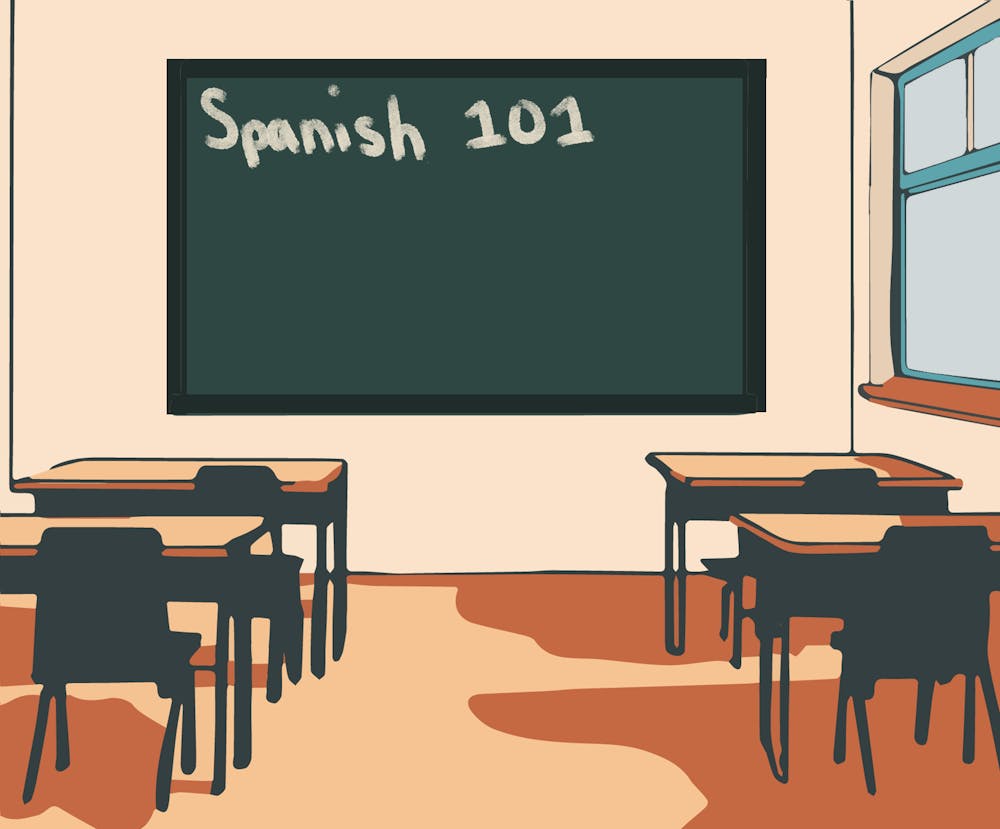While writing a syllabus, professors can worry about the number of assignments, weighting grades and now, breaking the law.
A bill relating to individual freedom has been active for nearly two years in Florida, affecting public universities across the state. Some professors haven’t seen a difference in how they’ve had to teach, but others have had to make changes in how to approach their course material.
House Bill 7 went into effect July 1, 2022. The bill, nicknamed the “Stop WOKE Act,” wanted to protect individuals from specific concepts that can be seen as “discrimination based on race, sex and national origin.” The bill also states that students or employees cannot be considered inherently racist or oppressive based on their race and sex.
The new concepts can be difficult for foreign language and culture courses to avoid, where topics like colonialism and race are often discussed in the classroom.
HB 7’s vague implications led to a lawsuit, and the 11th U.S. Circuit Court of Appeals decided the bill was unconstitutional in March because it violated the First Amendment.
Regardless, the bill has led to changes in classrooms across public universities in the state, including UF.
Professors and graduate assistants of foreign language classes have ensured that no rules are broken. However, when learning about culture, religion and gender, it can be easier said than done.
Teaching the culture
UF Creole professor Jhonson Leonard is in his second semester at the university and hadn’t heard about HB 7.
The 34-year-old professor likes doing things by the book. If it’s not part of the curriculum, he doesn’t teach it, he said. However, he understands where the application of bills like HB 7 can become complicated.
“To teach a language, you have to teach the culture,” Leonard said.
Haiti’s religions, music, food and education system help contextualize phrases in the language, he said. It also helps students improve their syntax and grammar.
Kleber Naula also sees the importance of teaching culture alongside language. The 44-year-old UF professor has taught Quechua, an indigenous language from Peru, since Spring 2022. He first heard about HB 7 when he was a student, and he said he remembered his classmates being worried about what that meant for the university.
According to him, 50% of his class is spent on grammar and learning, and the other 50% is spent on learning Andean culture.
A lot of aspects of Andean culture have been impacted by colonialism. However, the bill is adamant that no person bears “personal responsibility” or feels guilt for actions committed by other members of the same race, national origin or sex in the past.
Naula said alienating students has never been the goal in his class.
“We need to respect other students first,” he said.
Naula’s class often engages in debates. Since HB 7, he’s allowed himself to become more of a moderator. The students direct conversations that focus on the intricacies of Andean culture, such as its religion, economy, politics and the elements of its society.
He’s grateful that his students are curious about the culture alongside the language, and he said there needs to be a balance in how sensitive conversations are addressed.
“Avoiding topics like colonialism and racism is creating the opposite effect,” he said. “Even though the law is trying to… avoid this kind of conversation, I think people are still talking about it.”
Changing the approach
Tania Trejo-Mendez, a 25-year-old graduate student, was a teaching assistant for Introduction to Chicanx and Latinx History in Fall 2023. While not a language course, it explores the historical foundation and culture of the Latinx and Chicanx communities.
She learned about HB 7 from social media and her classmates. The question on her mind was, “What’s going to happen?”
While she didn’t help design the syllabus or curriculum, there were times when she would help prepare or conduct lectures. After the bill was implemented, she knew she had to “stick to the material” and not entertain many personal discussions on the topics.
“I don’t want to put myself, my professor, my supervisor or my students in a difficult situation,” she said.
The class does involve conversations about colonialism and racism, especially how they affect current Latinx and Chicanx communities. But Trejo-Mendez said she teaches objectively and clearly states when something is her own opinion and apart from the lesson.
The class title was also a topic of conversation.
“This general idea of Latinx or Chicanx means we invite people of all backgrounds, of all identities to take the class, learn from us, talk with us,” she said.
It’s to ensure an inclusive space where students feel comfortable to share their opinions, she added.
Trejo-Mendez also had concerns regarding her own research. She’s in the process of getting a master’s in Latin American studies, and the bill has made her so cautious that she’s reshaping how she portrays her research.
“I can’t help to be affected by the fear sometimes,” she said. “But I came here to study this and teach this.”
She hopes that professors and graduate assistants will continue to foster conversations with students without fear of these bills in the future.
“I know some people don't want us to be talking about these things,” Trejo-Mendez said, “but we're going to do it because this is important for you all to learn.”
Contact Delia Rose Sauer at drosesauer@alligator.org. Follow her on Twitter @_delia_rose_.
Delia Rose Sauer is a junior journalism student and the Fall 2024 University General Assignment Reporter. This is her second semester on the University Desk. In her free time, she's drawing on Procreate, crocheting or exploring music genres.






